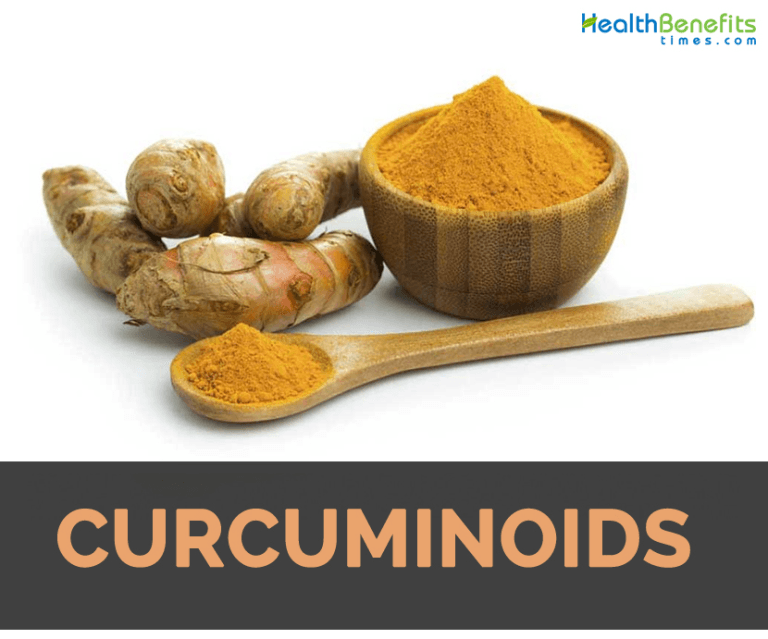Curcuminoids


A subclass of compounds known as polyphenols, which also includes many plant-based compounds like flavonoids and tannins, includes curcuminoids. Turmeric has long been used in traditional Indian and Chinese medicine because it contains significant amounts of the compound curcuminoids.
Curcumin, demethoxycurcumin, and bisdemethoxycurcumin are the three primary curcuminoids. The majority of turmeric's health advantages are thought to be attributed to curcumin, which has undergone the most research of the three.
1) Strong Anti-Inflammatory Effects of Curcuminoids
A typical immune response, inflammation aids in defending the body against injury and infection. However, chronic inflammation can contribute to the development of many diseases, such as heart disease, cancer, and Alzheimer's disease.
Curcuminoids are potent anti-inflammatory agents that can molecularly lessen inflammation. Curcumin has actually been demonstrated to be more effective at reducing inflammation than some anti-inflammatory medications.
2) Curcuminoids may improve mental health
The ability of curcuminoids to lower inflammation and enhance blood flow to the brain may be the cause of their cognitive benefits. The levels of brain-derived neurotrophic factor (BDNF), a protein that encourages the growth and development of new neurons, have also been shown to rise in response to curcuminoids.
3) Curcuminoids Might Aid in Cancer Prevention and Treatment
It has been demonstrated that curcuminoids kill cancer cells and stop them from spreading. Additionally, they might aid in minimizing the negative effects of chemotherapy, like nausea and vomiting.
4) Curcuminoids May Benefit Cardiovascular Health
Curcuminoids' anti-inflammatory and antioxidant properties may aid in shielding the heart from harm and disease. It has been demonstrated that curcuminoids enhance blood vessel health, lower cholesterol, and lower blood pressure.
5) Curcuminoids Might Help With Alzheimer's Disease Treatment
Alzheimer's disease is a form of dementia that impairs cognitive function by causing memory loss, confusion, and other issues. By lowering inflammation and removing amyloid plaques, which are protein deposits that accumulate in the brains of people with Alzheimer's disease, curcuminoids may aid in the treatment of Alzheimer's disease.
6) Curcuminoids May Reduce the Symptoms of Arthritis
Curcuminoids' anti-inflammatory properties may aid in easing arthritis-related pain and inflammation. It has been demonstrated that curcuminoids can lessen arthritis symptoms just as well as some medications.
7) Curcuminoids May Aid in the Treatment of Depression
A common mental disorder called depression results in a constant feeling of melancholy and a loss of interest in activities. Serotonin is a brain chemical that affects mood, and curcuminoids may help treat depression by raising serotonin levels in the body.
8) Curcuminoids Might Enhance Digestive Function
For centuries, people have used turmeric and curcuminoids to treat digestive issues like indigestion and diarrhea. By encouraging the production of bile, a substance that aids in the breakdown of fats, curcuminoids may help to improve digestion.
9) Curcuminoids May Aid in Diabetes Risk Reduction
Diabetes is a condition that develops when the blood sugar level is too high. Curcuminoids may help to reduce the risk of diabetes by improving insulin sensitivity and lowering blood sugar levels.
10) Additional Potential Health Benefits of Curcuminoids
Curcuminoids may have additional health advantages beyond those already mentioned, such as lowering the risk of cataracts, treating psoriasis, and slowing the progression of multiple sclerosis. These potential health advantages will, however, need to be confirmed by additional research.
When taken orally in the recommended dosages, turmeric and curcuminoids are typically safe. They might, however, result in some negative side effects like diarrhea, nausea, and upset stomach.
Curcuminoids may also interact with certain medications, such as blood thinners, so it is important to speak with a healthcare provider before taking them.
Turmeric and curcuminoids have no recommended dosage. There are many different dosages used in studies, ranging from 1 gram to 3 grams daily. To ensure safety and appropriate dosing, consult a healthcare professional before taking turmeric or curcuminoids.
Before using turmeric or curcuminoids, consult a healthcare professional because they may interact with some medications, such as blood thinners.
Uncertainty surrounds the precise mode of action of curcuminoids and turmeric. Their anti-inflammatory and antioxidant qualities, however, are believed to be a part of their health-promoting effects.
The gastrointestinal tract has poor absorption of curcuminoids and turmeric.
Turmeric and curcuminoids can be substituted with a variety of herbs, including ginger, boswellia, and devil's claw. Although these substances differ in their chemical structure, they have similar pharmacological effects.
For instance, ginger contains the substance gingerol, which has been demonstrated to have antioxidant and anti-inflammatory properties. The herb boswellia contains the substance boswellic acid, which has been demonstrated to prevent the synthesis of inflammatory molecules. The plant known as devil's claw contains the anti-inflammatory and pain-relieving substances harpagoside and procumbide.










Plus get the inside scoop on our latest content and updates in our monthly newsletter.